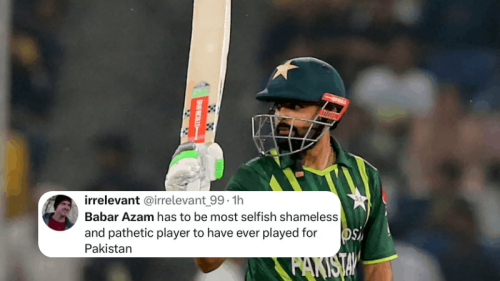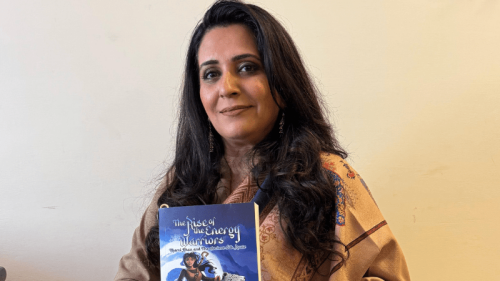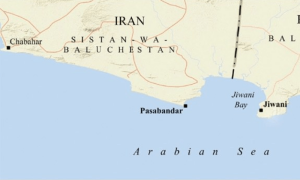Pakistan’s standing in the recently-concluded Under-19 Cricket World Cup was no less shocking as it was disappointing.
The team, selected from two local tournaments, had toured South Africa where it played a three-nation tournament against the hosts and Zimbabwe and stood second. Later, they played a series against South Africa in which they beat the host country. In May 2012 the team participated in the Asian Under-19 Cup in which it shared the trophy with India. They also played a three-match ODI series against Australia before the World Cup which they won 2-1.
With such performances, it goes without saying that the Pakistani team was the favourite for the Cup, and did live up to its performance until the quarterfinal which it lost to India after a hard-fought battle. Derailed by this defeat, it lost its momentum and could not win a single match after that.
One of the main reasons for this shoddy performance was the poor team management. There was little indication of an effective game plan and the playing eleven were not chosen according to the requirements of the particular match while the key batsmen did not perform when needed the most. Besides, some very talented players, who had given outstanding performances in the local Under-19 tournaments were ignored from the beginning and were not selected in the team because of which the final team selected for the World Cup was weak in many areas.
The team was expecting a lot with their top order batsmen like Sami Aslam, Umer Waheed, Babar Azam, Imam ul Haq and Saad Ali. Out of these, only Azam remained consistent and scored 287 runs at impressive average of 57.4. The biggest disappointment was Aslam who was Pakistan’s top scorer during the Asian Under-19 Cup but in the World Cup he could only manage 127 runs at an average of just 21.1. Aslam is a very talented batsman and coaches should see that he improves his technique on Australia’s fast wickets.
A ray of hope was the all round performance by Mohammed Nawaz who scored 199 runs at an average of 49.7 and also took 10 wickets at an average of 18.6 with his spin bowling. He sure is a bright prospect for the future of Pakistan cricket. Wicketkeeper Salman Afridi, however, could score just 25 runs in four innings which was quite crucial since no team can now afford the luxury of a wicketkeeper who cannot bat
Among fast bowlers, Zia ul Haq (11 wickets at an average of 14.2) and Ehsan Adil (eight wickets at 18.1) made a mark. However, the pick of the bowling attack with respect to average — not only in this tournament but also in the Asian Under-19 — was Azizullah. But surprisingly he was made to play in just one match in the entire tournament, the quarterfinal against India in which he took three wickets for 30 runs and was main destroyer of the Indian batting.
One of the biggest blunders of the match was the inclusion of two spinners. Indians are always experts at playing spin bowling and face trouble against fast bowlers, especially in Australian conditions. It would have been wiser to have included a fourth fast bowler instead of the spinner to strengthen the fast bowling attack of Azizullah, Ehsan Adil and Zia ul Haq. The Indian team’s last pair survived and won the match because the three Pakistani fast bowlers had already bowled their quota of overs and there was no choice but to use spinners.
Another major reason for Pakistan’s miserable performance was the poor selection of the team. The selectors had ignored some good players who had performed well at the local front. The 2011-12 season saw two Under-19 inter regional / departmental tournaments: three-day matches and a one-day matches contest. These two events provided the pool of players for selectors on basis of which they formulated the Pakistan Under-19 team.
Among the batsmen who performed well but were ignored was Mohammed Mohsin of Wapda, who was on top of averages of the three-day matches tournament scoring 558 runs at outstanding average of 93.00. Haseeb ur Rehman of ZTBL also made a mark with 550 runs at an average of 78.50 as did Irfan Tirmizi of Islamabad who scored 612 runs at an average of 68.00.
The one-day local tournament brought to the fore performances by Atif Shuja of Islamabad (177 runs at 88.50), Nasir Khan of Quetta (265 runs at 66.3) and Mohammed Waheed of Wapda (264 runs at 66.0). None of them, however, were considered for selection. Shuja is also a wicketkeeper and had he been in the Pakistan team, he could have propped the lower middle order.
Among the fast bowlers who performed well in local tournaments, the most noticeable omission was of Abid Hussain from Rawalpindi who nabbed 37 wickets at an impressive average of 15.13. Two other fast bowlers who became victims of the selection committee were Salman Saeed who, in just two matches took 17 wickets at an impressive average of seven, and Irfanullah (29 wickets at an average of 13.40). Both represented Abbottabad. Among spinners it was Faraz Ahmed from Karachi (30 wickets at an average of 15).
The top brass of Pakistan cricket and its think tanks should seriously look into the reasons for the debacle. They should make sure that in future a strong management should be appointed which can groom the young team properly and see to it that all players are selected on merit. Only then can Pakistan expect to perform well in future Under-19 tournaments.

















































Dear visitor, the comments section is undergoing an overhaul and will return soon.